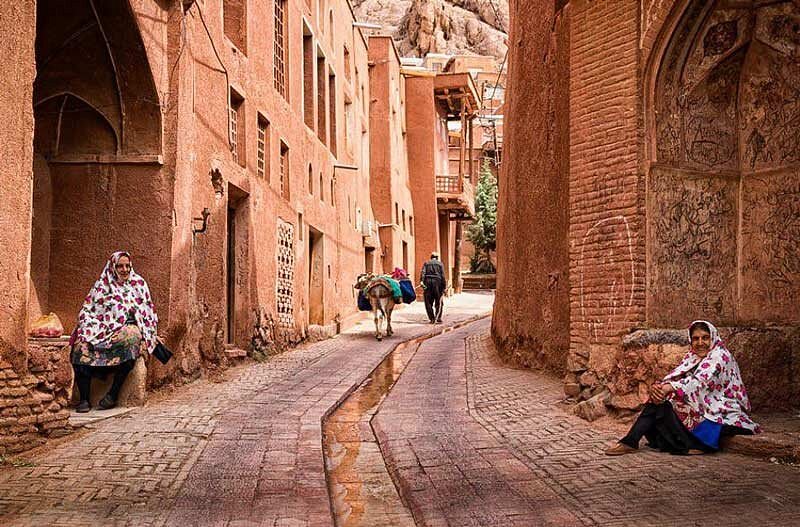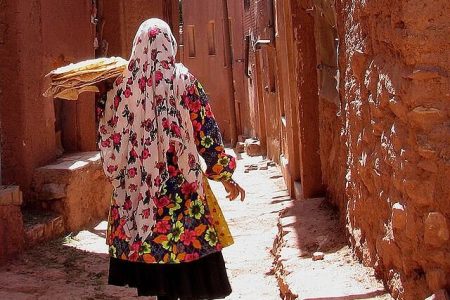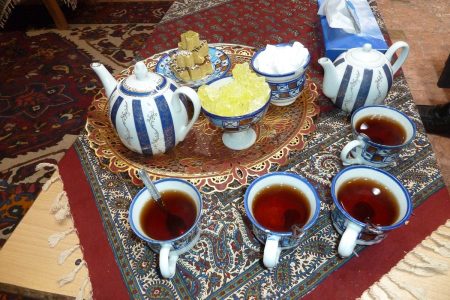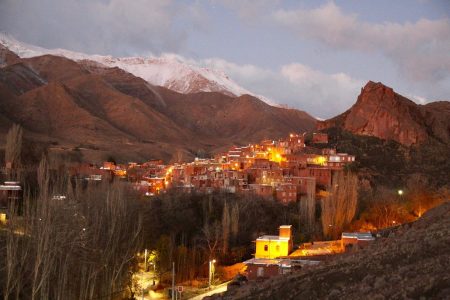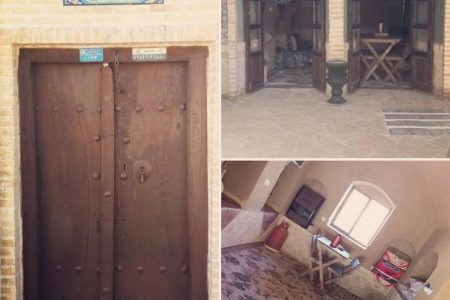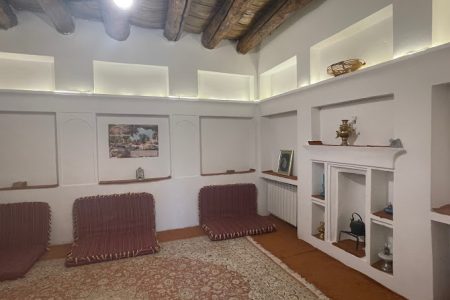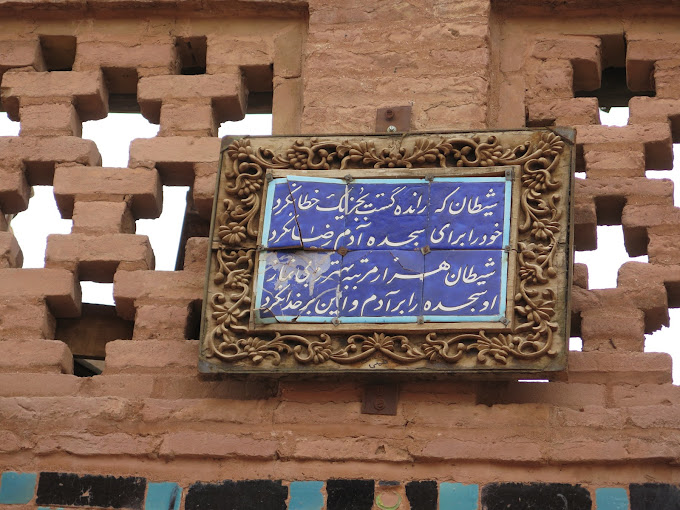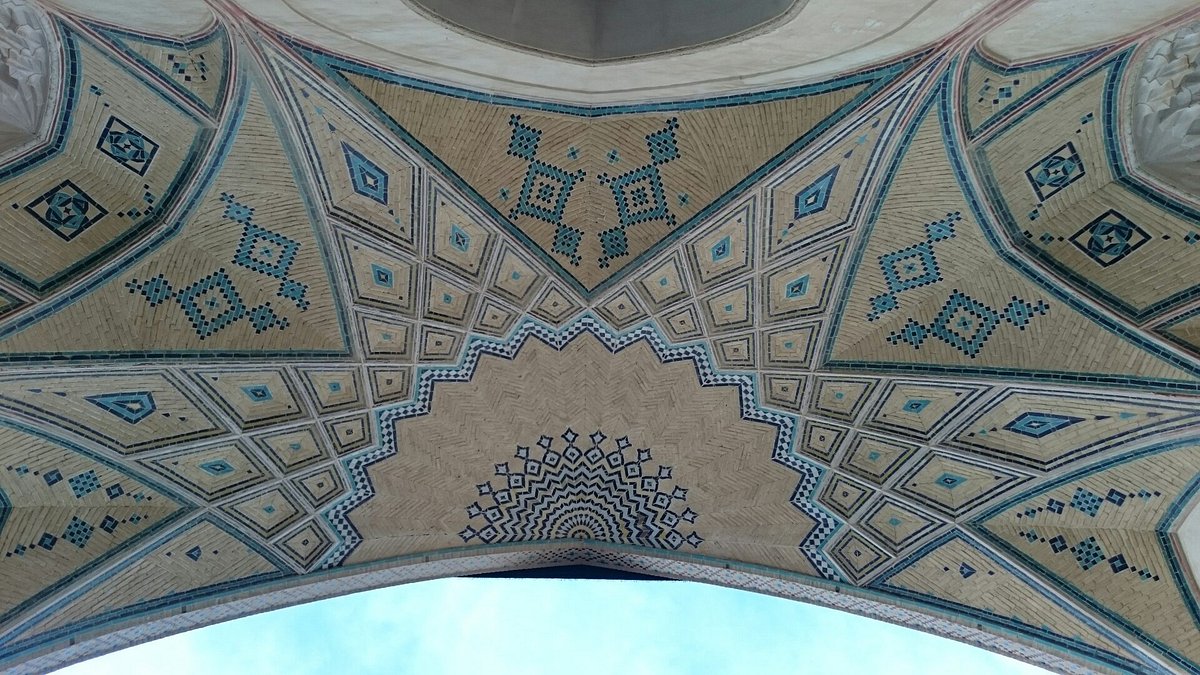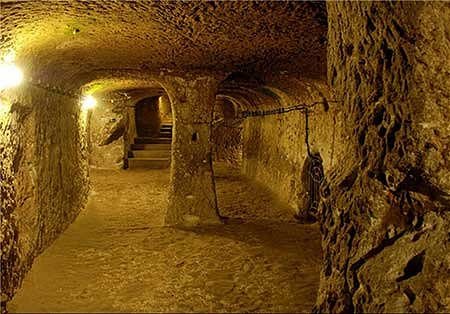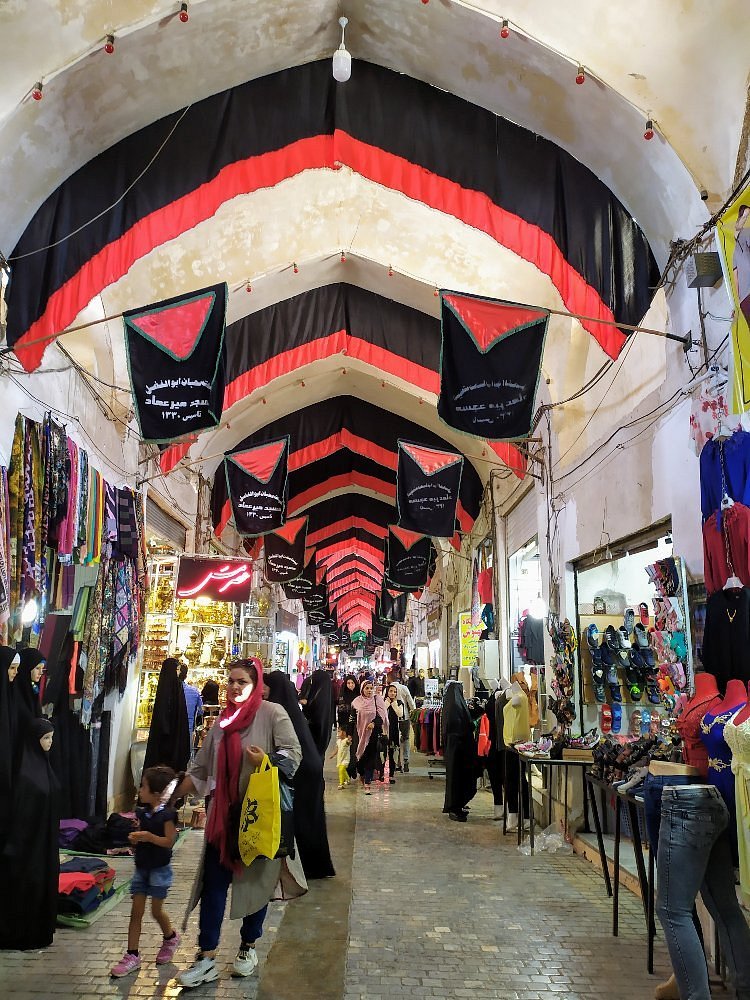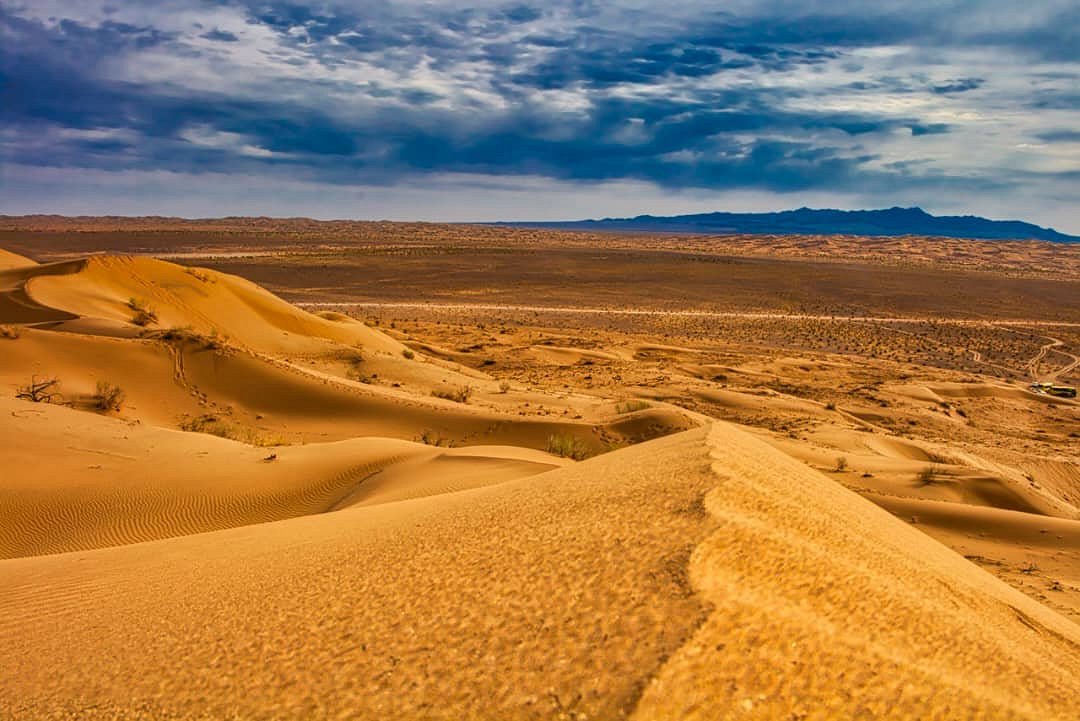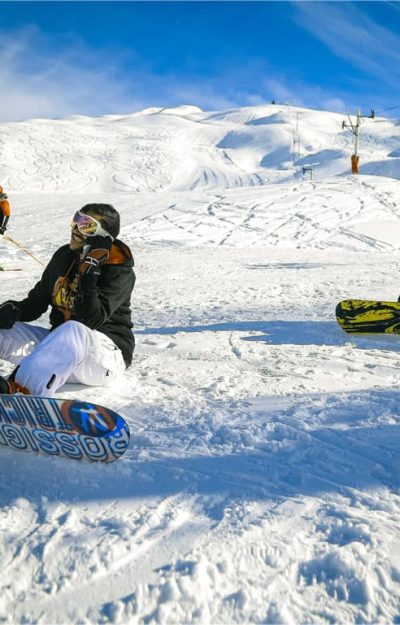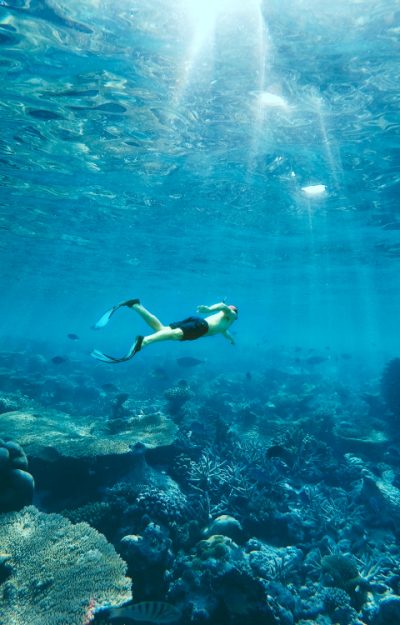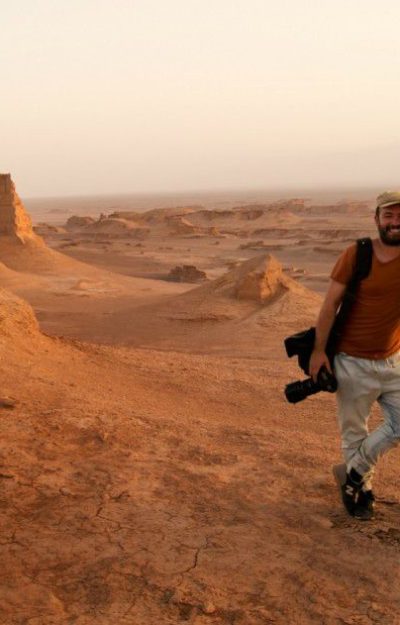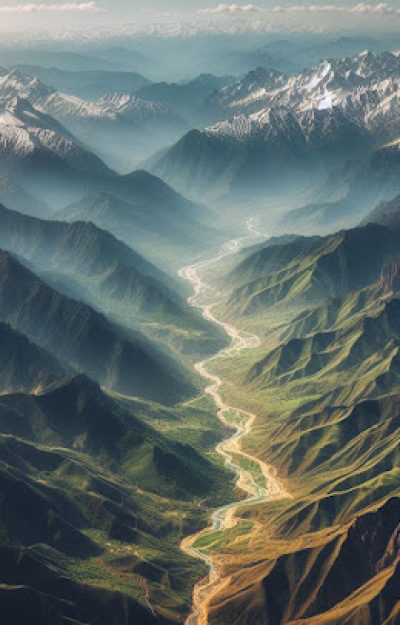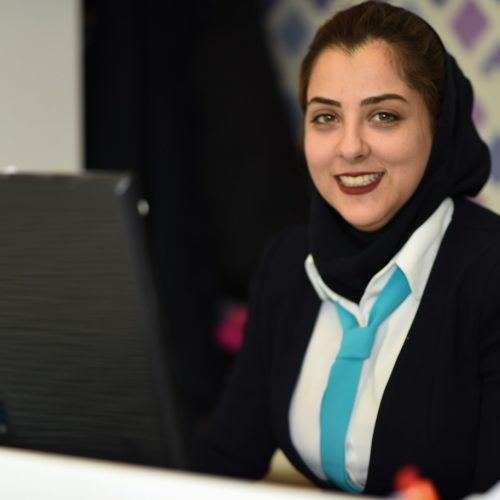Why to visit Abyaneh?
A spectacle of reddish-hued mudbrick houses, labyrinthine lanes, and traditionally garbed locals, Abyaneh is often referred to as the “Red Village” due to its characteristic adobe structures that seemingly cascade down the hillside, amalgamating harmoniously with the russet mountains that cradle the settlement. The village’s rustic dwellings, constructed using a peculiar blend of mud and straw, are not only a testament to the environmental consciousness and ingenuity of ancient architects but also a splendid spectacle against the often snow-draped mountains in the backdrop.
As you wander through the serpentine alleyways, the poetic whisper of the Persian language, spoken in an ancient Pahlavi dialect, may grace your ears, revealing the villagers’ steadfast commitment to preserving their ancestral tongue amidst the omnipresence of modern Persian. The local population, primarily elderly folks, offer a living testament to a culture rooted in profound traditions. Women clad in colorful, floral headscarves and flowing skirts—an age-old attire, and men donning loose trousers and felt hats, warmly welcome visitors with Iranian hospitality, occasionally sharing tales of the village’s glorious past.
Abyaneh is not only a visual and cultural delight but also a spiritual enclave, with the presence of several historic mosques, such as the Jameh Mosque, which harbors a scripturally significant ancient Quran, and other sacred places that have silently observed the ebb and flow of generations. The village’s religious edifices, with their understated elegance and spiritually charged atmospheres, stand as silent custodians of faith and tradition, providing insight into the spiritual inclinations and practices of the inhabitants across centuries.
Further, exploring Abyaneh offers a gastronomical adventure where travelers can indulge in authentic Iranian countryside cuisine. The use of locally-sourced ingredients and ancient culinary methods provides a palate of flavors that are not only a treat to the senses but also a delightful insight into the local way of life.
The village serves as a magnificent panorama where nature and architecture confluence splendidly, offering a tranquil escape from the bustling energy of Iran’s urban spheres. Abyaneh provides not merely a physical journey but a temporal one, where every cobblestone and weather-beaten wall has tales to whisper, and every welcoming smile from the amiable locals speaks volumes about the undeterred spirit of a culture that refuses to fade into oblivion.
As an emblem of Iran’s historical depth, architectural splendor, and cultural richness, Abyaneh stands as an unmissable destination for any traveler seeking to explore the multifaceted beauty and enduring legacy of the Iranian plateau, ensuring a unique, enchanting experience that seamlessly weaves the threads of the ancient and the contemporary. So, venture into this living museum and allow yourself to be immersed in a poignant symphony of rich culture, boundless history, and unrivaled natural beauty.
